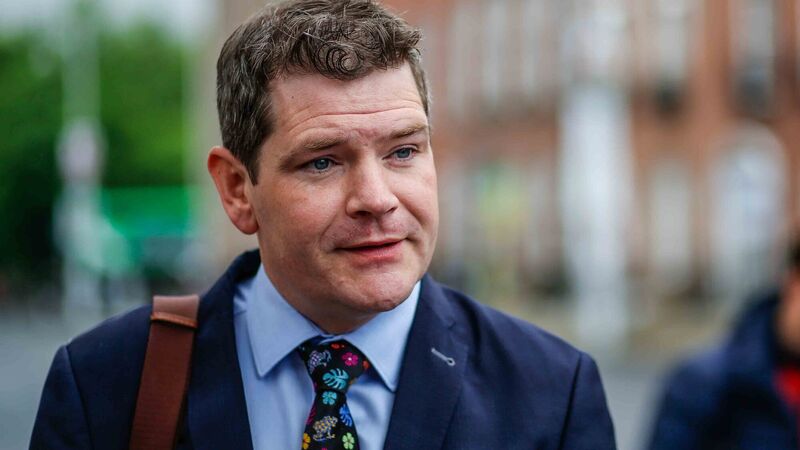SME supports come after government bends to lobbying pressures

The supports come after a cabinet shake-up as Simon Harris became Taoiseach and appointed Peter Burke as Minister for Enterprise. Picture: Damien Storan
Government has agreed on a range of measures to support small and medium sized firms following ramped-up lobbying efforts by several business organisations as cost burdens linger.
The measures, brought forward by the Department of Enterprise, Trade and Employment, include doubling the Innovation Grant Scheme to €10,000, increasing the maximum amount available under the Energy Efficiency Grant Scheme to €10,000 and reducing the business contribution rate from 50% to 25%.
The Government will also increase the lending limit for Microfinance Ireland loans to €50,000 from €25,000.
“We hope that the announcement by Government signals a new approach to addressing the very significant competitiveness pressures facing business and look forward to further material delivery on the commitments made today in Budget 2025,” said Irish Business and Employers Confederation (Ibec) chief executive Danny McCoy.
As part of the new bundle of supports, Minister for Social Protection Heather Humphreys said she will increase the employer PRSI threshold from €441 to €496 with effect from October 1, ensuring that employers with employees earning the weekly equivalent of the national minimum wage will pay the lower rate of employer PRSI rate of 8.8%.
In addition, the Increased Cost of Business (Icob) Scheme will be reopened for another 14 days and retail and hospitality businesses will be eligible for a second payment under the scheme, despite underwhelming interest among businesses when it was open previously.
“The double payment of the Increased Cost of Business grant for businesses in the retail and hospitality sectors is particularly welcome as these sectors have been hardest hit by rising costs and squeezed by tightening margins,” said Chambers Ireland’s chief executive Ian Talbot.
However, the Vintners’ Federation of Ireland (VFI) said the hospitality sector requires "strategic measures that will support the pub trade over the long-term."
"Grants are not the answer to the crisis facing our members," said VFI chief executive Pat Crotty. “Publicans require meaningful changes to their cost base, such as lowering the standard VaT rate and a reduction in the alcohol excise rate, currently the second highest in Europe.
The supports come after a cabinet shake-up as Simon Harris became Taoiseach and appointed Peter Burke as Minister for Enterprise.
As covid-19 business supports were wound up and a general election looms closer, government was under pressure from business representative groups to deliver additional supports, but there are some concerns among experts that this may lead to unviable so called "zombie" firms.
Elsewhere, businesses have largely availed of the separate Debt Warehousing Scheme.
“It is a scheme that saved businesses. Without that support, many would not still be open,” said Finance Minister Michael McGrath.
At its peak, around €3.2bn of tax debt was warehoused through the scheme across more than 100,000 business.
Currently, the figure that is subject to payment arrangements is less than €200m, and there is a separate €120m sum in the debt warehouse that is deemed uncollectable due to insolvency issues and business closure.














